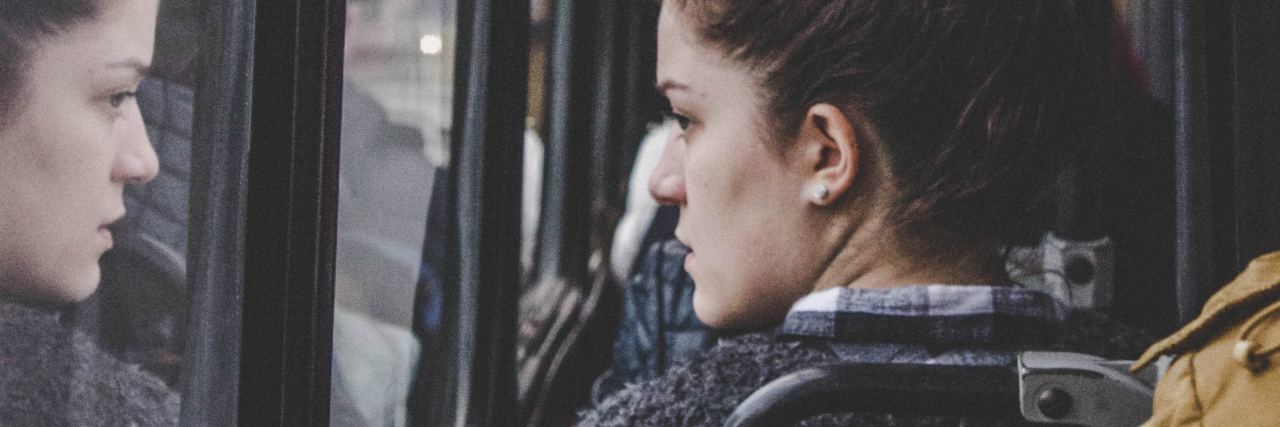When You 'Split' on Borderline Personality Disorder Recovery
Editor's Note
If you struggle with self-harm or experience suicidal thoughts, the following post could be potentially triggering. You can contact the Crisis Text Line by texting “START” to 741741. For a list of ways to cope with self-harm urges, visit this resource.
I recently had one of those moments I always tell myself will come: that moment where I just think, “I’m sick of this, I’m not doing this anymore,” and I blindly throw myself head-first into recovery. And it sounds as though that is a really great thing and, in a way, it is. But it becomes less significant and exciting when it’s the millionth time it’s happened.
My primary diagnosis is borderline personality disorder (BPD), also known as emotionally unstable personality disorder (EUPD). My history with engaging with professional help and mental health services is very long but very patchy. Despite my constant mantra of “I’m going to stick with it this time,” I seem to always inevitably, impulsively force myself into a self-discharge for one reason or another and I find myself back at the bottom of waiting lists with no input for months (at least) to help me get by. So, I constantly find myself having to manage my recovery on my own and muddling along, always a little bit lost.
Being in this state of “quasi-recovery” has become my general state of being. I will have one of these moments, where the idea of getting better sparks my brain like a firework and I will fully believe with all of me that I will do it and I’ll never relapse and everything will be wonderful. The length of these periods can vary vastly. The longest stint I had was over the period of almost half a year, where I was not self-harming or engaging in other self-destructive behaviors and I was fighting with everything I had to not fall down the pit again. And then there are the other times when I commit myself fully to recovery and then find myself writing a suicide note a mere hour later.
The danger of these periods of seemingly managing to do well is that, when I fall, I fall hard. I find myself romanticizing the future when I am feeling positive — imagining myself laughing in a field with my friends on a sunny day, eating pizza without a care, sipping cocktails and all of my scars magically disappeared. I convince myself there will never be another bad day in my life, that everything from now on is going to be a fight but it’s going to be so worth it for all of the beautiful, perfect times I’m going to have that are going to last forever. And it’s delusional. Life is never like that. So, when the tiniest negative thing pops up, I tell myself it’s all a lie; nothing is ever going to be good ever again. And then, I find myself even further down than I was before.
One of the characteristics of borderline personality disorder is “splitting,” or this idea of “black-and-white” thinking. In most examples I have read of this, it’s usually about people. You love somebody and then you hate them. For me, I encounter splitting the worst with my recovery. If I’m doing well then everything is great and perfect and life is wonderful and everything is going to be OK. The second I am not doing well, I think life is meaningless, that I am worthless, that “recovery” is pointless and I end up in a massive self-destructive spiral. It’s hard to have recovery in the “on” position when your mental illness is the one in control of the switch.
I am writing this purely so that maybe somebody else like me can relate. For the longest time, I thought I was so broken, so irreparable because engaging with professionals never worked for me. Or it would be starting to maybe work and then I would blink and find I had been impulsive and discharged myself yet again, and it’s back to square one. But I’ve realized I’m not broken. It’s not that I cannot be worked with. I am currently a week or two away from my first appointment to re-engage with mental health services so I’ll have to see how it goes. But now that I have recognized where my issues with engagement have come from, I am hopeful it is something that can be discussed. I hope the realization I will want to run is going to be the main thing that stops me.
Being stuck in “quasi-recovery” is so difficult because I don’t know whether, in the grand scheme of things, I’m going forward or backward. I’m going up and down so often that my recovery timeline probably resembles a mountain range at this point. And I learned to be afraid of the ups because I knew there would always be a down at the other side. I’m not sure how to get out of that. But I’ve recognized it. And maybe that can be my new step one.
Photo by Dan Bøțan on Unsplash

